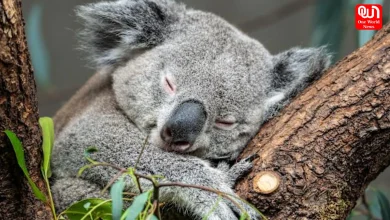Celebrating Accession Day: Importance, History, and Significance
Accession Day is celebrated to honor the historic integration of states into India, reflecting patriotism, history, and unity.
Accession Day Celebration: Understanding Its History, Importance, and National Significance
Understanding Accession Day
Accession Day is a significant day in the history of India that commemorates the integration of princely states into the Indian Union. Following India’s independence in 1947, several princely states had the choice to join India or Pakistan or remain independent. The accession of these states was a crucial step toward forming a unified and strong nation. Every year, Accession Day is observed to honor the decisions made by the rulers of these princely states and their contribution to the consolidation of India as a sovereign nation.
Historical Background of Accession Day
The history of Accession Day is closely tied to India’s independence and the partition in 1947. At the time of independence, India was composed of British-administered provinces and over 500 princely states. These princely states were semi-autonomous regions ruled by local monarchs. Accession Day marks the day when a princely state formally joined the Indian Union, signing the Instrument of Accession. The most notable of these accessions was that of Jammu and Kashmir on October 26, 1947, which is observed annually as Accession Day in the region.
Importance of Accession Day
Accession Day is important for several reasons. Firstly, it reminds citizens of the historical significance of state integration, which played a key role in shaping modern India. Secondly, it serves as a tribute to the leaders and citizens of princely states who chose to join the Indian Union despite facing challenging circumstances. Thirdly, the day promotes a sense of patriotism, unity, and pride among Indians, reinforcing the values of national integrity and cohesion. Observing Accession Day also educates the younger generation about the sacrifices and decisions that contributed to the nation’s development.
How Accession Day is Celebrated
Accession Day is celebrated with various events and ceremonies across the country, particularly in states that have a significant historical context related to accession. Government offices, schools, and cultural organizations host flag hoisting ceremonies, parades, and cultural programs that highlight the history and importance of the day. Special speeches and educational sessions are conducted to spread awareness about the historical significance of accession. In regions like Jammu and Kashmir, the day is observed as a public holiday, and citizens participate in community gatherings and patriotic events to honor the occasion.
Significance for National Unity
Accession Day holds deep significance for India’s unity. The integration of princely states helped establish a cohesive political and administrative structure, strengthening the nation’s sovereignty. It also sent a message to the world about India’s commitment to unity and its ability to bring diverse regions together under a single national identity. Celebrating Accession Day reinforces the spirit of oneness among citizens and promotes respect for the decisions that contributed to the country’s independence and territorial integrity.
read more: Diwali 2025: How To Keep Your Pets Safe From Noise This Festive Season
Lessons from Accession Day
The observance of Accession Day teaches valuable lessons about leadership, courage, and decision-making. The rulers of the princely states had to make difficult choices for the welfare of their people and the larger good of the country. Their decisions, often taken under pressure, helped shape the future of India. Accession Day encourages reflection on these historical choices, inspiring citizens to value unity, cooperation, and responsible leadership in contemporary times. It also emphasizes the importance of understanding and preserving India’s rich historical and cultural heritage.
Accession Day in Modern Context
Today, Accession Day continues to be a day of national pride and remembrance. Beyond historical ceremonies, it serves as a platform to discuss issues related to governance, integration, and national development. The day also provides an opportunity to revisit the principles of democracy, federalism, and unity in diversity that guided the nation during the post-independence integration process. For citizens, particularly students and young adults, Accession Day acts as a reminder of the responsibilities of citizenship and the importance of contributing positively to society.
read more: International Artist Day: Honoring Creativity and Global Artistry
Conclusion
Accession Day is more than just a historical event; it is a celebration of unity, patriotism, and national integrity. Observing this day allows Indians to honor the decisions of past leaders and the sacrifices of citizens who contributed to India’s development. From its historical significance to its role in promoting national unity, Accession Day remains an important part of India’s cultural and political heritage. By remembering and celebrating this day, the nation continues to strengthen its collective identity and pays tribute to the vision of a united India.
We’re now on WhatsApp. Click to join.
Like this post?
Register at One World News to never miss out on videos, celeb interviews, and best reads.








